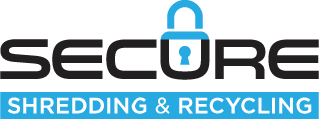
National Tax Day is April 15th, and if you haven’t already begun compiling your relevant papers, chances are good that it’s a task you’ll need to tackle in the next few weeks. Once your yearly taxes have been filed, however, what do you do with your copy? How long do you have to keep all those thick file folders, and when you’re ready to get rid of them, is there a right way?
Document destruction services have long been considered the go-to method for safely discarding confidential information, but today, we’ll walk through all the questions you should be asking before you make the decision to shred your old tax records.
What Kind of Tax Records Should I Keep?
You should hold onto a copy of every document that goes into your yearly tax return – your W-2s, 1099s, donation receipts, medical expenses, copies of pay stubs, etc. This is important in case there are any discrepancies or accounting errors that arise in the future. If you have a copy of your return, you’ll be able to see exactly what should have been submitted and provide any additional information if requested. When in doubt, keep a copy of everything you submitted or referenced in your tax filing.
How Long Should I Hold on to Tax Records?
Generally speaking, you’ll need to keep your tax records for at least three years. This is the period of time during which claims can be made for a refund, and during which any additional taxes may be assessed. There are exceptions, ranging from seven to ten years, but these tend to depend on the specific circumstances of the individual.
Even if the IRS no longer needs you to keep your records, it’s a good idea to check with your insurance company or any relevant creditors before permanently pitching out your files.
Do I Really Need a Document Destruction Service to Throw Out Old Taxes?
The short answer is yes. Home shredders rarely possess the processing capability to shred documents into small enough pieces to discourage reconstruction. Homeowners and businesses also typically lack access to a secure disposal site. Once documents are deposited in the public trash, there are few laws to regulate who can access or retrieve them.
A document destruction service neatly solves these problems all at once. Professional shredding machines can cross-cut thousands of papers every minute, and produce particles the size of fine confetti. These particles, after the shredding process is complete, are directly and securely transported to a trusted local recycling company, where they are chemically treated to remove all traces of ink or other markings, washed, and remade into recycled paper products. There will be no trace left of your documents, and no chance whatsoever that they could be lost or stolen.
Why Can’t I Throw Them Out Myself?
Your tax records contain a veritable treasure trove of information for identity thieves. With only a name and an address, they may be able to lie their way into opening an account in your name. Armed with your date of birth, your financial information, your social security number, and your family details – all of which are in a typical tax return – they can do much more serious damage, such as stealing your identity or filing a fraudulent claim in your name.
Professional, certified, and tracked document destruction services are a way to guarantee that none of your tax documents end up in the wrong hands. If the company provides mobile shredding, you’ll even be able to watch as your documents are shredded and personally verify that no papers remain intact.
What If I Still Need to Hang on to My Tax Returns?
If you still need to hang on to your tax returns for a few more years, you’ll want to make sure that they’re stored safely and securely. Keep them somewhere only you can access, like a locking safe. If you do use a safe, make sure it’s fireproof, and only provide the combination or key to someone you absolutely trust.
If you don’t want a bunch of papers cluttering up your storage area, consider digitally scanning them onto a secure hard drive. This should still be password-protected, especially if on a device that can connect to the internet, but a single hard drive takes up much less space than a bunch of thick file folders. Make sure that the information on your digital scans is clear and legible, in case you need to reference it again.
For more information on document destruction services to Baton Rouge, Lafayette, Lake Charles, and New Orleans, give us a call at (225) 751-8535. You can also send us a message online or request a free quote.
To our valued customers: we are remaining strong, dedicated to supporting our people and our community and we are taking the necessary precautions to keep our customers and staff safe. We would like to let you know that:
- We will remain open for business at this time. We plan to continue our operations for as long as our customers stay open and need our services.
- We are carefully monitoring the health of our entire staff. No one will be out servicing our customers, or working in our offices, if they are experiencing any cold or flu-like symptoms.
- If you have your employees working from home, please remind them of the importance of storing any paperwork they may have to print in a bag or box at their home. Employees can bring that container back to your office and place the contents in our shred containers when you re-open. Reminding your employees that the safety of their documents is always critical, and keeping work-related and personal documents out of dumpsters all over the city will go a long way in keeping your corporate information safe.
Stay well and please reach out if you have any questions!
Secure Shredding and Recycling

